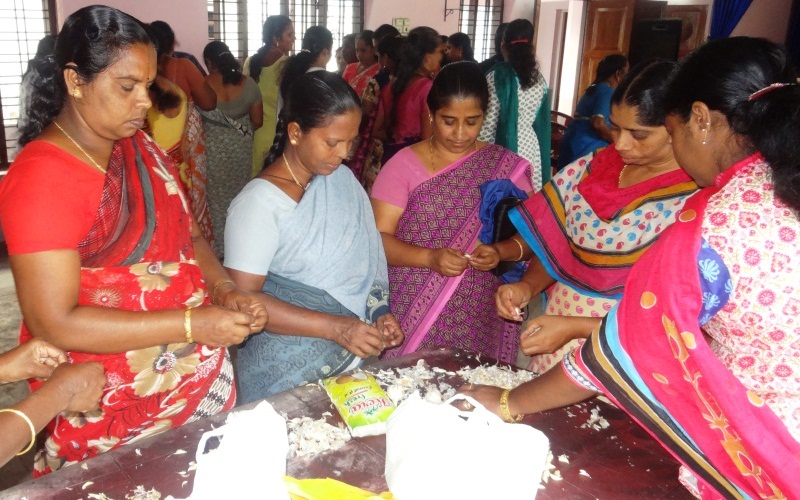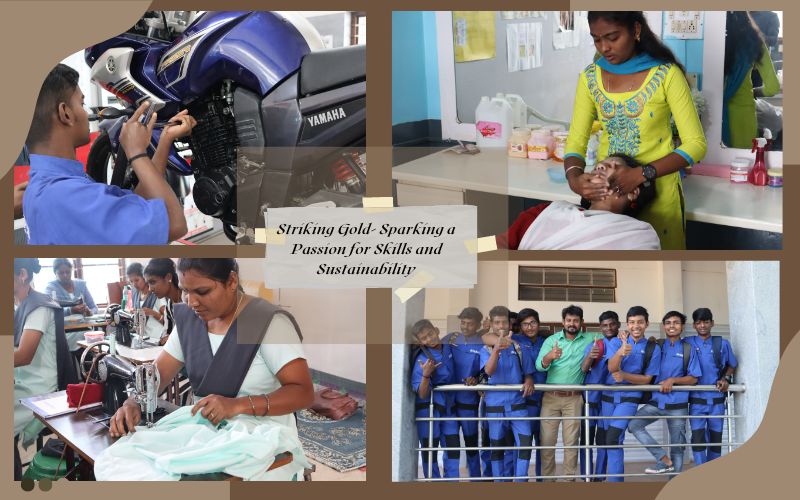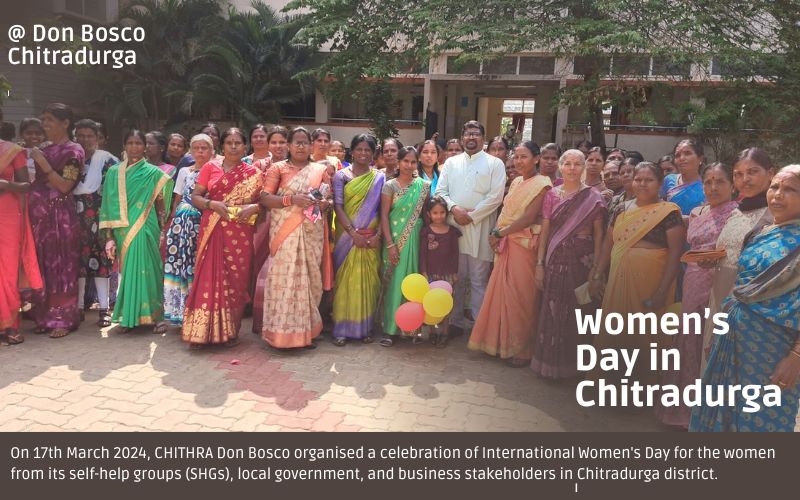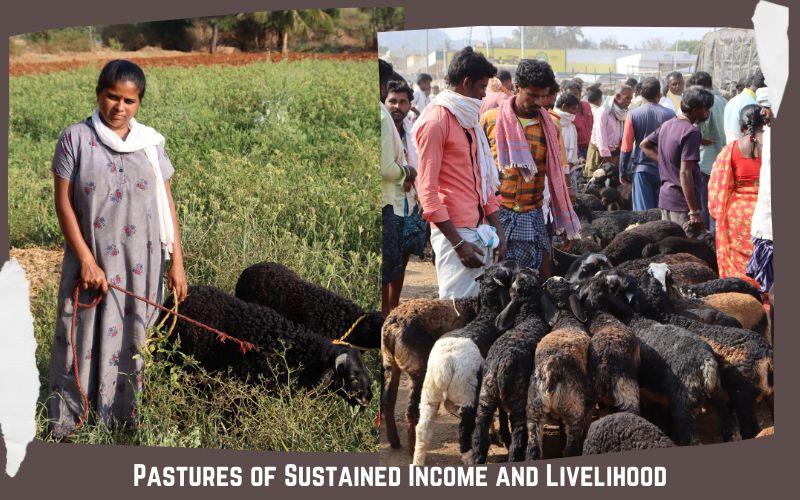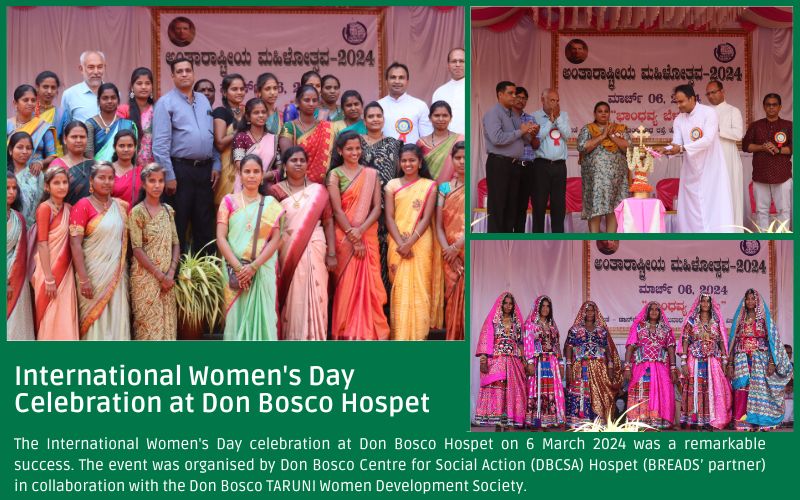The Fishermen Community Development Programme (FCDP), Kollam, Kerala and Theeradesa Mahila Society (TMS) organized two days production skill training for the SHG members on 8th and 9th of January 2018. The training aimed at providing a perfect platform for the participants to gain practical knowledge on food processing and to manufacture diverse products for income generation. The training also concentrated at strengthening one’s capacity, productivity and performance. The two days session was handled by Mr. Ajay Shankar from KITCO. In the inaugural address, Fr. Joby Sebastian, Director FCDP spoke about the role and advantages of SHGs in income generation activities. The session handled in regard to the aim and objectives of the project, taught the members about the vast opportunities in the food processing area, how it can lead to job creation and how it can influence change in one’s financial environment. The first session dealt with introduction of raw materials for the preparation of 5 different varieties of pickles considering the availability and demand. The trainer also insisted on creating uniqueness in flavour and taste to increase the market value and customer attraction as customers preferred variety always. The process of packing products was also explained to complete the process.
On the second day, the participants were introduced to the preparation of 6 more items namely, fish fry masala, sambar powder, rasam powder, pakkavada, mixture and kuzhalappam. The trainer maintained the standard method of adding the ingredients using the standard measurements, which will be an add on factor if the products are produced on a large scale with the group. The trainer also explained the importance of having standard measurements otherwise when in the production it can create differences of idea, methods and process, it can lead the group to chaos and disintegration. The sessions were taken very interactively and during the making itself the participants clarified their doubts as the training progressed. The trainer also encouraged everyone to give their suggestions and inputs. The participants were made more oriented towards the need-based products. On the whole, the participants actively participated and enhanced their knowledge to make an effective change in their livelihood to attain self-reliance through income generation.
-
Striking Gold- Sparking a Passion for Skills and Sustainability
The vocational skilling programme for marginalised youth began o
-
Women’s Day in Chitradurga
On 17th March 2024, CHITHRA Don Bosco organised a celebration of
-
Pastures of Sustained Income and Livelihood
The Women Empowerment through Livelihood and Entrepreneurship (W
-
International Women’s Day Celebration at Don Bosco Hospet
The International Women's Day celebration at Don Bosco Hospet on


